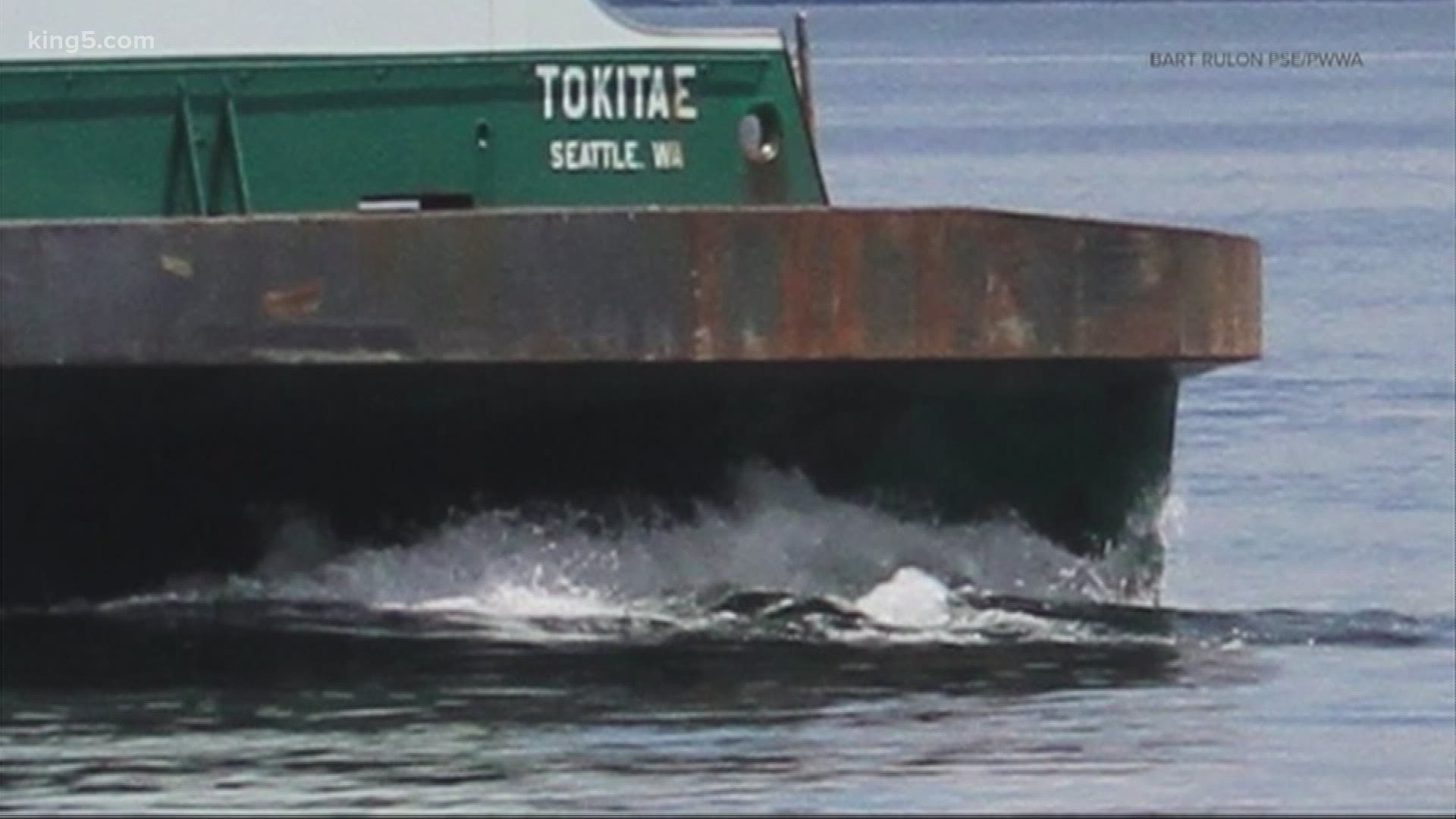MUKILTEO, Wash. — The search concluded Tuesday for a humpback whale reportedly struck by a state ferry — though the animal has not been found.
A pair of whales had been spotted on Monday, one larger than the other. Witnesses on a nearby Puget Sound Express whale watching boat saw the animal surface directly in front of the ferry M/V Tokitae as it approached the terminal in Mukilteo.
“That happened and we all kind of cringed, and I said on the mic, 'I hope he didn’t get hit,'” said Bart Rulon, of Puget Sound Express. “But he was so close, it’s hard to imagine that he didn’t.”
Video recorded soon after shows the smaller animal appearing disoriented, before sinking beneath the surface. Rulon said they did not see it again.
A team from the National Oceanic and Atmospheric Administration (NOAA) was out Tuesday looking for the animal, but will not continue Wednesday.
Washington State Ferries is investigating what happened. They say crew and passengers did not notice the potential strike, and were unaware at the time of any incident.
NOAA said late Tuesday that the smaller humpback in question had still not be located, but its larger companion was spotted Monday night.
The agency used photos to determine the injuries to the whale were new, and not present when it was spotted July 4 and 5 in the area. They believe the whales were traveling in a larger group from British Columbia.
Based on that new info, NOAA believes it's clear the animal was struck.
Washington State Ferries spokesperson Dana Warr said the state investigation was underway Tuesday, but it appears likely the ferry struck the whale.
Some uncertainty comes from the position in photos taken from the Puget Sound Express boat. The whale appears to surface right under the bow, out of sight by crew on the bridge.
He added, it appears the ferry system's policies were followed. The fleet was alerted to the whales’ presence over the radio, and the Tokitae began slowing.
He noted the ferries are unwieldy and take longer distances to stop than smaller craft, often it takes hundreds of feet to slow down from cruising speed. The Tokitae is an Olympic class ferry measuring 362 feet long, and capable of 17 knots.
“What we’re hearing and reading is the whale just popped up within feet of the bow of vessel,” Warr said. “Plus the captain, he’s looking way out in front, not 10 feet in front of the boat. By that point, it’s really too late.”
This would be the second strike by a ferry in a little more than a year. Back in May 2019, a ferry struck and killed a juvenile humpback in Elliot Bay, much to the horror of watching passengers.
The whale surfaced right in front of the boat and was hit, then was spotted bleeding nearby soon after.
Back then, a Washington State Ferries captain explained the difficulty in predicting whales’ movements, when they travel underwater for periods of time before surfacing.
“Again, they’re unpredictable,” Captain Brian Jonsson said last year. “They make their dive, now where is it going to go? He could turn around, come around the same spot, 400 yards further down. They can go down 10 to 15 minutes. You can see him go down over there and who knows where he’s going to come up 10 minutes later.”
But strikes by ferries are exceedingly rare. After the May 2019 whale strike, WSF said it was the first recorded incident of its kind. The agency has no record of similar incidents going back 30 to 40 years.
“Two now in a year, it’s just very unfortunate,” Warr said. “Very rare.”
He said it’s too soon to consider any policy changes. But that’s certainly on the table as the investigation proceeds.

